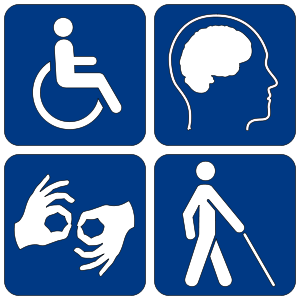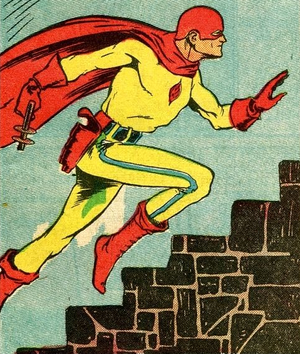 Cover via AmazonIt's week 4 of the semester, and the prompt for this week says to discuss the books we've found so far (since the school library is pretty small, we'll probably have to do interlibrary loans, so we have to start looking right away). As I mentioned before, Dr. Toffee gave me some titles and authors to look for, so I'll start with them.
Cover via AmazonIt's week 4 of the semester, and the prompt for this week says to discuss the books we've found so far (since the school library is pretty small, we'll probably have to do interlibrary loans, so we have to start looking right away). As I mentioned before, Dr. Toffee gave me some titles and authors to look for, so I'll start with them.
Davis, Lennard, ed. The Disability Studies Reader. NY: Routledge, 1997. There's a newer edition of this, but this is the one our library has, so I checked it out. It's a collection of articles, and a bunch of them look good for my project. Toffee says that the basics for analysis are in most of the articles.
Linton, Simi. Claiming Disability: Knowledge and Identity. NY: NYUP, 1998. I read the first chapter in this one (it's a short book), and it looks like I'm going to be using it a lot -- it's just what I need. She talks about how disabled people have been treated through history and now, too.
Thomson, Rosemarie Garland. Extraordinary Bodies: Figuring Physical Disability in American Culture and Literature. NY: Columbia UP, 1996. I had to do an interlibrary loan on this, so I haven't seen it yet, but the title sounds like it is relevant. After all, there isn't a much more extraordinary body than the Thing, right? She also has a book on freak shows, which looks pretty interesting.
There's more, but I'll save that for next time.





 Seen and Heard!
Seen and Heard! What sex education is available for young people with a learning disability?
What sex education is available for young people with a learning disability? CRTC studying telecom technology for people with disabilities
CRTC studying telecom technology for people with disabilities No place for disablism in disability campaigning
No place for disablism in disability campaigning National Disability Rights Group: Study Finds Medical System Violates Civil Rights of Disabled People
National Disability Rights Group: Study Finds Medical System Violates Civil Rights of Disabled People #6 'The Anti-Social Model of Disability' by Dewsbury et al.
#6 'The Anti-Social Model of Disability' by Dewsbury et al. A Primer on Fatphobia, Body Image, and Disability
A Primer on Fatphobia, Body Image, and Disability Image via WikipediaHere it is, at least the one I'm working with for my draft:
Image via WikipediaHere it is, at least the one I'm working with for my draft: Cover via AmazonIt's week 4 of the semester, and the prompt for this week says to discuss the books we've found so far (since the school library is pretty small, we'll probably have to do interlibrary loans, so we have to start looking right away). As I mentioned before, Dr. Toffee gave me some titles and authors to look for, so I'll start with them.
Cover via AmazonIt's week 4 of the semester, and the prompt for this week says to discuss the books we've found so far (since the school library is pretty small, we'll probably have to do interlibrary loans, so we have to start looking right away). As I mentioned before, Dr. Toffee gave me some titles and authors to look for, so I'll start with them. Image by WBUR via FlickrI think I've got a topic, but I have to come up with a research question, and I'm having trouble finding the words. I saw Dr. Toffee during her office hours on Thursday, and we talked about movies. It turns out that she is interested in disability in movies. After hearing her talk about it for a while, I got interested too, and she suggested a few that I might want to think about. This may sound strange, but I think I'm going to look at superhero movies, starting with The Fantastic Four and the X-Men films. They both deal with people who are physically different from "normal" people, and I can already see that they have some of the issues Dr. Toffee mentioned.
Image by WBUR via FlickrI think I've got a topic, but I have to come up with a research question, and I'm having trouble finding the words. I saw Dr. Toffee during her office hours on Thursday, and we talked about movies. It turns out that she is interested in disability in movies. After hearing her talk about it for a while, I got interested too, and she suggested a few that I might want to think about. This may sound strange, but I think I'm going to look at superhero movies, starting with The Fantastic Four and the X-Men films. They both deal with people who are physically different from "normal" people, and I can already see that they have some of the issues Dr. Toffee mentioned.